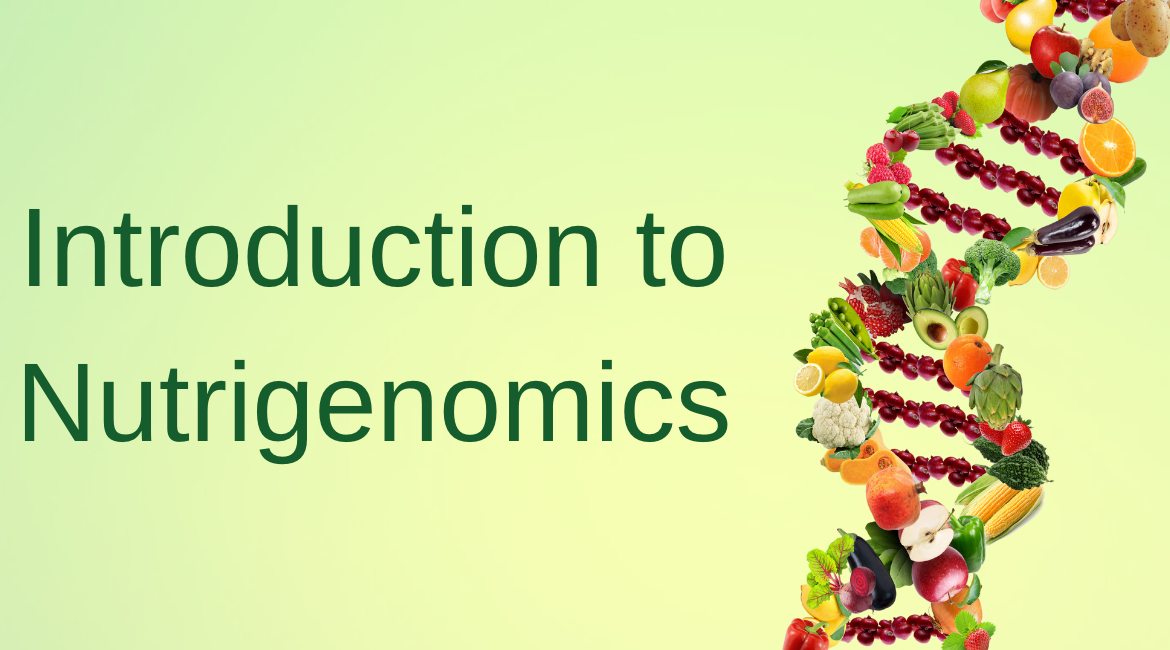What is nutrigenomics?
Nutrigenomics is a field of study that investigates the relationship between an individual’s genetic makeup and their response to specific nutrients and dietary factors. It explores how variations in genes can influence how the body processes and utilises different nutrients. It recognises that genetic factors can influence nutrient metabolism, nutrient absorption, and other biological processes related to nutrition. By examining these genetic variations, nutrigenomics helps identify personalised dietary recommendations that take into account an individual’s unique genetic profile.
What are the goals of nutrigenomics?
The goals of nutrigenomics are multi-fold. Firstly, it aims to understand how dietary factors interact with an individual’s genes, leading to variations in nutrient metabolism and health outcomes. It seeks to identify genetic markers that can predict an individual’s response to specific diets or nutrients. This knowledge is then applied to develop personalised nutrition strategies that promote optimal health, prevent disease, and potentially manage existing conditions through dietary interventions tailored to an individual’s genetic profile.
Can nutrigenomics help with weight management?
Yes, nutrigenomics can provide insights into weight management. Genetic variations can influence an individual’s metabolism, appetite regulation, nutrient absorption, and response to different diets. By analysing these genetic markers, nutrigenomics can help tailor dietary recommendations to match an individual’s genetic predispositions and optimise the effectiveness of weight loss strategies and help individuals maintain a healthy weight more successfully.
What role does genetic testing play in nutrigenomics?
Genetic testing plays a central role in nutrigenomics. It involves analysing an individual’s DNA to identify specific genetic variations related to nutrition and health. This genetic information helps determine an individual’s predisposition to certain dietary responses, nutrient metabolism, food sensitivities, and other relevant factors. Genetic testing provides the foundation for personalised dietary recommendations and interventions in nutrigenomics. The only way to apply nutrigenomics is to have your DNA assessed.
Are there any risks or side effects associated with nutrigenomics?
Nutrigenomics itself does not pose direct risks or side effects since it primarily involves the analysis of genetic information and the development of personalised nutrition recommendations. However, it is important to note that the interpretation and implementation of nutrigenomics findings may carry certain risks. For instance, overreliance on genetic information alone without considering other factors, such as overall health status or individual lifestyle, may lead to suboptimal dietary choices. It is advisable to consult qualified healthcare professionals (like myself!) or genetic counselors who can help interpret the results and guide the application of nutrigenomics in a comprehensive and responsible manner.
What are some practical applications of nutrigenomics?
Nutrigenomics has several practical applications. It can help individuals understand their unique nutritional needs, guide dietary choices to optimise health and well-being, and potentially reduce the risk of developing certain diseases. Nutrigenomics can also assist in the management of chronic conditions by tailoring nutrition plans based on an individual’s genetic profile. Additionally, it has implications for personalised sports nutrition, as it can identify genetic factors that influence athletic performance, nutrient utilisation, and recovery.
Are there specific genes or genetic variations that nutrigenomics focuses on?
Nutrigenomics focuses on various genes and genetic variations related to nutrition and metabolism. Examples include genes involved in nutrient absorption, metabolism of macronutrients (carbohydrates, fats, proteins), detoxification processes, appetite regulation, hormonal regulation and inflammation response. By examining these genetic variations, nutrigenomics aims to understand how they impact an individual’s response to different dietary factors and design personalised nutrition strategies accordingly.
What is the current state of research and scientific consensus on nutrigenomics?
Nutrigenomics is an active area of research, and ongoing studies contribute to expanding our understanding of gene-nutrient interactions and their implications for health and disease. While nutrigenomics shows promise, it is important to note that the field is still evolving, and more research is needed to establish robust scientific evidence and consensus on various aspects. As new findings emerge, the scientific community continually assesses and refines our knowledge of nutrigenomics, and the current state of research should be considered when evaluating its applications and limitations.
Are there other questions that you have about nutrigenomics? If so, post below. Or contact me (Varsha) directly by sending me an email: hello@illuminatedhealth.com


